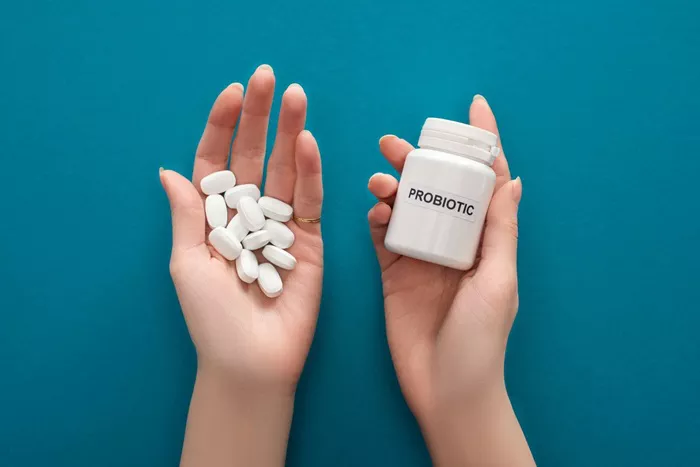Hot flashes are a common symptom experienced by many women during menopause. They can be uncomfortable and disrupt daily life. While there are various treatments available, some women are turning to probiotics for relief. But do probiotics really help with hot flashes? Let’s explore this topic in detail.
Introduction to Hot Flashes and Menopause
Menopause is a natural part of life for women, marking the end of their menstrual cycles. It typically occurs between the ages of 45 and 55. During this time, the body undergoes significant changes, including a decrease in estrogen levels. This hormonal shift can lead to various symptoms, such as hot flashes, night sweats, mood swings, and vaginal dryness.
Hot flashes are sudden feelings of warmth that spread through the body, often accompanied by sweating and a rapid heartbeat. They can occur at any time, day or night, and can be triggered by stress, certain foods, or even the environment. While they are not harmful, hot flashes can be distressing and affect a woman’s quality of life.
Understanding Probiotics
Probiotics are beneficial bacteria that live in our bodies, particularly in the digestive system. They help maintain a healthy balance of gut bacteria, which is crucial for overall well-being. Probiotics can be found in fermented foods like yogurt, kefir, and sauerkraut, or taken as supplements.
These beneficial bacteria support digestion, boost the immune system, and even influence mood and energy levels. Recent research suggests that probiotics may also play a role in alleviating menopausal symptoms, including hot flashes.
How Probiotics Might Help With Hot Flashes
Probiotics work by improving gut health, which in turn can affect other parts of the body. Here are a few ways probiotics might help with hot flashes:
Regulating Body Temperature: The hypothalamus, a part of the brain, controls body temperature. During menopause, changes in estrogen levels can make the hypothalamus more sensitive, leading to hot flashes. Probiotics may help the hypothalamus function better, reducing the frequency and severity of hot flashes.
Hormonal Balance: Probiotics can influence hormone levels indirectly. For example, they may help maintain a healthier balance of estrogen, which is important during menopause.
Reducing Stress and Anxiety: Stress can trigger hot flashes. Probiotics have been shown to reduce stress and anxiety by promoting a healthier gut-brain connection.
Improving Overall Health: By supporting digestion and immune function, probiotics can improve overall health, which may indirectly help manage menopausal symptoms.
Best Probiotics for Menopause Symptoms
Certain probiotic strains are more effective than others in alleviating menopausal symptoms. Here are some of the best ones:
Lactobacillus rhamnosus GG: Known for reducing hot flashes and improving bone density.
Lactobacillus reuteri: Helps with hot flashes and supports vaginal health.
Bifidobacterium bifidum: Supports heart health and reduces hot flashes.
How to Use Probiotics for Hot Flashes
If you’re considering using probiotics to help with hot flashes, here are some tips:
Consult a Doctor: Before starting any new supplement, it’s a good idea to talk to your healthcare provider. They can help you choose the right probiotic and ensure it won’t interact with any medications you’re taking.
Choose the Right Strain: Look for probiotics that contain strains known to help with menopausal symptoms, such as Lactobacillus rhamnosus GG or Bifidobacterium bifidum.
Eat Fermented Foods: In addition to supplements, try incorporating fermented foods into your diet. These foods naturally contain probiotics and can support gut health.
Combine with Lifestyle Changes: While probiotics can be helpful, they work best when combined with other healthy lifestyle choices, such as regular exercise, a balanced diet, and stress management techniques.
Conclusion
Probiotics are not a magic solution for hot flashes, but they can be a useful addition to your symptom management plan. By improving gut health and potentially influencing hormone balance, probiotics may help reduce the frequency and severity of hot flashes. Always consult with a healthcare provider before starting any new supplements, and remember that a comprehensive approach to managing menopausal symptoms often includes lifestyle changes and possibly other treatments.
In summary, while more research is needed, probiotics offer a promising non-invasive strategy for managing hot flashes and other menopausal symptoms. They are generally safe and can provide additional health benefits, making them worth considering for women looking for natural ways to alleviate menopause discomfort.
Related topics:
- Can Probiotics Help Perimenopause [Revealed!]
- 5 Best Probiotics For BV Prevention
- 7 Best Probiotics For Pregnant Women


